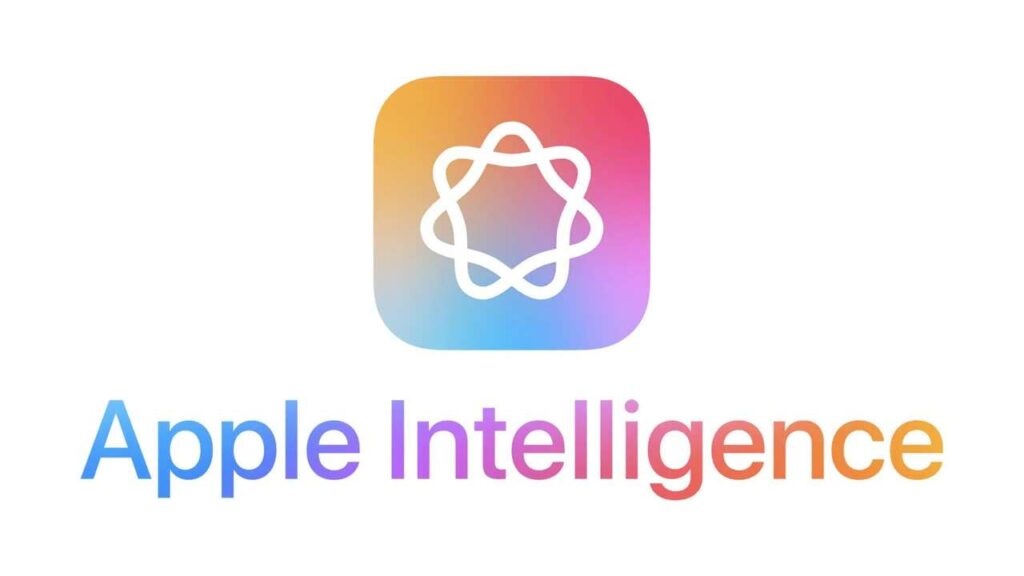
What is Apple Intelligence ? How to work Apple AI System 2024
Apple Intelligence: A Comprehensive Overview
Artificial Intelligence (AI) has transformed how we interact with technology, and Apple is at the forefront of this revolution. Apple Intelligence refers to the company’s integration of AI and machine learning (ML) across its devices, software, and services. Unlike many competitors, Apple emphasizes on-device intelligence, prioritizing user privacy while delivering cutting-edge performance. Let’s explore the different components of Apple Intelligence, how it works, and its impact on users.
Outline:
- Introduction
- Overview of Apple Intelligence
- Apple’s approach to AI and privacy
- Siri: Apple’s Personal Assistant
- Evolution of Siri
- AI behind Siri’s voice recognition and natural language processing
- Siri Shortcuts and automation
- On-Device Machine Learning
- Neural Engine in Apple Silicon
- Applications of machine learning on iPhone, iPad, and Mac
- Apple Intelligence in Photos
- AI-powered search and categorization in Photos
- How Apple’s machine learning improves photo editing
- AI in Apple’s Health and Fitness Apps
- Using AI for health monitoring
- Personalized recommendations through machine learning
- Apple Maps and AI Navigation
- Enhanced maps with AI-driven route optimization
- Siri suggestions for proactive navigation
- Security and Privacy: Apple’s Core Values
- How Apple uses AI to enhance security without compromising privacy
- Face ID and biometric security
- Apple’s Future AI Developments
- AI in augmented reality (AR) and virtual reality (VR)
- Apple’s potential role in autonomous systems and AI-driven vehicles
- Conclusion

Introduction: The Philosophy Behind Apple Intelligence
Apple Intelligence is more than just AI; it’s Apple’s unique approach to creating smarter, more intuitive devices while maintaining strict privacy standards. Apple’s products—from the iPhone and Mac to its services like Apple Music and Siri—are infused with AI capabilities designed to make technology more personal, user-friendly, and secure.
At the heart of Apple’s approach is a focus on on-device intelligence, meaning most AI processes happen directly on your device rather than in the cloud. This protects user data from being transmitted to external servers, aligning with Apple’s commitment to privacy-first technology. The AI systems are optimized for efficiency, using the Neural Engine within Apple’s custom silicon chips (such as the A17 Bionic and M1/M2 chips) to deliver powerful performance while minimizing energy consumption.
Siri: Apple’s Personal Assistant
Evolution of Siri
Siri, Apple’s voice-activated personal assistant, is one of the most prominent examples of Apple Intelligence. Launched in 2011, Siri has evolved into a sophisticated tool powered by advanced AI and natural language processing (NLP). Over the years, Siri has become more conversational, understanding complex commands, offering personalized suggestions, and performing tasks autonomously through Siri Shortcuts.
AI Behind Siri’s Voice Recognition and Natural Language Processing
Siri’s intelligence relies on machine learning models that are trained to understand a wide range of accents, dialects, and languages. Apple uses natural language processing to interpret user requests accurately. With on-device intelligence, Siri can perform tasks even without an internet connection, like setting alarms, controlling music, or sending messages.
Siri Shortcuts and Automation
Siri’s capabilities extend to automation through Siri Shortcuts, allowing users to create custom voice commands to trigger multiple actions across different apps. This automation feature is powered by AI and makes everyday tasks more efficient by learning user habits and proactively suggesting shortcuts.
On-Device Machine Learning
Neural Engine in Apple Silicon
A crucial component of Apple Intelligence is its Neural Engine, integrated into Apple Silicon like the A18 Bionic chip found in the iPhone 16 and the M1/M2 chips in the latest MacBooks. The Neural Engine is designed to handle tasks like image processing, voice recognition, and augmented reality efficiently on the device itself.
Applications of Machine Learning on iPhone, iPad, and Mac
Apple uses on-device machine learning to improve a range of features across its devices. For instance, in the iPhone, machine learning powers real-time enhancements in the Camera app, enabling night mode, smart HDR, and portrait lighting. On the Mac, it enhances the Apple Silicon processors, allowing for smoother multitasking, faster rendering, and optimized power consumption.

Apple Intelligence in Photos
AI-Powered Search and Categorization in Photos
Apple’s Photos app employs AI to automatically sort and categorize images. By using on-device machine learning, the app can recognize faces, objects, locations, and even specific events, making it easier for users to search their photo library. Privacy is preserved because this analysis is done entirely on the device without sending data to the cloud.
How Apple’s Machine Learning Improves Photo Editing
AI-driven features like Live Text, which allows users to interact with text in photos, and Auto Enhance, which automatically adjusts brightness, contrast, and color, are examples of how machine learning simplifies photo editing on Apple devices. This intelligence helps users enhance their images with just one tap, making professional-level adjustments accessible to everyone.
AI in Apple’s Health and Fitness Apps
Using AI for Health Monitoring
Apple Intelligence also extends to health and fitness through the Apple Health and Fitness+ apps. AI algorithms track users’ physical activity, sleep patterns, and vital signs such as heart rate and blood oxygen levels. By analyzing this data, Apple can offer personalized insights and recommendations.
Personalized Recommendations Through Machine Learning
Using AI, the Apple Watch can detect abnormal heart rhythms, suggest mindfulness exercises, and adapt workout recommendations based on a user’s fitness level and daily habits. This intelligent system helps users stay on top of their health and fitness goals while providing early detection for potential health concerns.
Apple Maps and AI Navigation
Enhanced Maps with AI-Driven Route Optimization
Apple has vastly improved Apple Maps with AI-enhanced features. For instance, the app uses machine learning to offer better route optimization, factoring in traffic conditions, accidents, and weather in real-time. This ensures that users always get the fastest and safest route.
Siri Suggestions for Proactive Navigation
AI also powers Siri Suggestions in Apple Maps, proactively offering navigation routes based on user behavior. For example, if you often visit a certain location on specific days, Siri will automatically suggest directions without you needing to ask.

Security and Privacy: Apple’s Core Values
How Apple Uses AI to Enhance Security Without Compromising Privacy
Apple Intelligence plays a crucial role in maintaining the security and privacy of its users. Features like on-device processing for machine learning tasks help to ensure that sensitive data never leaves the device. Additionally, Apple’s Differential Privacy technique anonymizes data, making it impossible to trace back to individual users.
Face ID and Biometric Security
Face ID, Apple’s biometric security feature, uses AI to map a user’s face in 3D. It then compares this data to the stored facial model using neural networks to unlock the device or authorize purchases securely. Unlike traditional biometric systems, Apple’s Face ID adapts over time, learning subtle changes in your appearance.
Apple’s Future AI Developments
AI in Augmented Reality (AR) and Virtual Reality (VR)
Apple is making significant strides in AR and VR, and its AI technologies will play a key role in these developments. Apple’s ARKit enables developers to create immersive AR experiences on the iPhone and iPad, and future Apple products like the rumored Apple Vision Pro are expected to take AR/VR to the next level using AI.
Apple’s Potential Role in Autonomous Systems and AI-Driven Vehicles
In the automotive space, Apple is rumored to be working on an AI-powered autonomous vehicle, often referred to as the Apple Car. Apple’s expertise in AI and machine learning positions the company to potentially revolutionize the transportation industry.
Conclusion
Apple Intelligence is a powerful ecosystem of AI technologies that enhance the performance, functionality, and security of Apple’s devices. From Siri and on-device machine learning to AI-powered health monitoring and privacy-first security features, Apple continues to push the boundaries of what AI can achieve while maintaining its commitment to protecting user privacy. As AI advances, Apple is poised to remain at the forefront, creating more personalized, intuitive, and secure experiences for its users.







